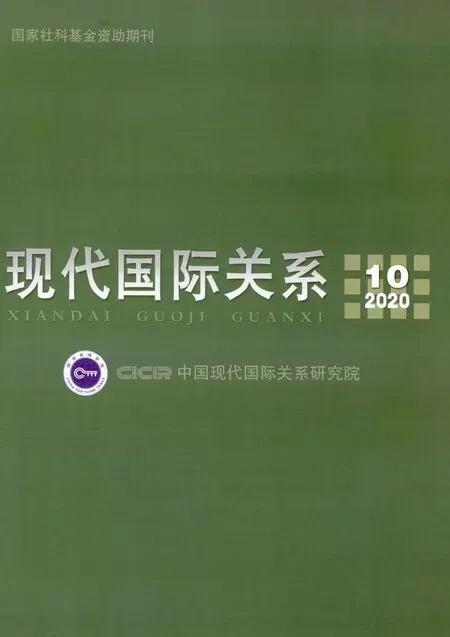Abstracts
Russia’sStrategicVisionoftheUSIndo-PacificStrategyandItsResponse
ShangYue
Abstract: Since 2017, the Trump administration has accelerated its “open, free Indo-Pacific strategy.” Russia is generally critical of the strategy since it is a challenge to Russia’s “turn east” strategy.At the same time, Russia is glad to see that it is not the main target of US in the region, so there are still new opportunities for its Asia-Pacific diplomacy.Russia adopts a flexible and pragmatic policy, but the policy faces many obstacles.Russia will uphold its inherent principles of Asia-Pacific diplomacy and seek to maximize its strategic benefits.
Keywords: Russia-US relations, Indo-Pacific strategy, great power relations, Russian diplomacy
Russia’sPolicytowardAfghanistan:Adjustment,MotivationandProspect
WangHaibin
Abstract: Russia has adjusted its policy toward Afghanistan recently.It no longer pursued an anti-Taliban policy but cooperated with Afghanistan.Russia has supported a political solution on the Afghan issues and approved the US peace deal with the Taliban.Russia has promoted the process of National reconciliation in Afghanistan more actively and proactively.Russia has paid more attention to the security cooperation with SCO, CSTO and its allies than the departure of the American troops.The main motivations for Russia to adjust its Afghanistan policy are the changes in the international situation and in Afghanistan.The Russian policy adjustment on Afghanistan has achieved some positive results, but it is difficult for Russia to realize its strategic appeal in Afghanistan with its own strength and influence.Russia will continue to seek international cooperation to consolidate and enhance its influence in Afghanistan in the future.
Keywords: Russia; Afghanistan; Moscow Procession; National Reconciliation
EU’sSecurityConcernsinItsEconomicCooperationwithChina
LiuLanfenandLiuMingli
Abstract: The EU’s security concerns in dealing with its economic relations with China have increased in recent years.The emergence of security concerns in the EU stems from the increasing competitiveness and decreasing complementarity of the economic structures of the two sides, and is also related to the political dynamics of the EU itself, as well as the changes of international security and strategic environment.The relevant policy adjustment of the EU has had a significant impact on the layout of Chinese investment in Europe, but there are still opportunities for future cooperation.
Keywords: EU, China-EU economic relations, security concerns, direct investment, China model
NewDiplomaticTrendsinCentralAsia
WangShusenandZengXianghong
Abstract: In recent years, there has been a trend of ‘return’ of the traditional thinking of geopolitical competition, and the geopolitical competition among major powers at global and regional levels has been intensified as well.The competition among great powers in Central Asia is a typical manifestation of great powers’ geopolitical game at the regional level.Several major powers have adjusted their Central Asian policies and deepened their engagement in Central Asian affairs, which created the primary drivers of the new diplomatic dynamics in Central Asia.In addition, new characteristics of current diplomacy in Central Asia are emerging.The new trends pose challenges and opportunities for China.In terms of challenges, major powers have paid increased attentions and efforts in Central Asia, urging China to act prudently to avoid regional tensions or chaos.In terms of opportunities, China can fully take advantage of its economic strength,its partnership with Central Asian countries established over the past three decades, and its cooperation mechanisms to promote the mutual trust and cooperation among China and Central Asian countries.
Keywords: Central Asian diplomacy; trends; zero-sum game; C5+1; connectivity
ChangesinUSCongress’sInterferenceoftheTaiwanIssue
ZhouWenxingandLinGang
Abstract: The US Congress has put greater efforts to interfere with the Taiwan issue during the Donald Trump administration to “normalize” the bilateral relations between the United States and Taiwan.Based on the regular patterns drawn from an empirical study of Taiwan-related bills and resolutions during the 93rd and 114th US Congress(1973-2016), this paper argues that the main factors behind US Congress’s interference with the Taiwan issue since January 2017 can be analyzed from structural, institutional, and individual aspects.The 115th and 116th Congress has involved itself further with the Taiwan affairs.Looking forward, China’s continuous development is the key factor to constrain such a dangerous trend.Only when China-US relations are back to a normal development can Washington really subject its ties with Taipei to the one-China policy.
Keywords: Taiwan issue, US Congress, Taiwan-related legislation, US Taiwan policy

